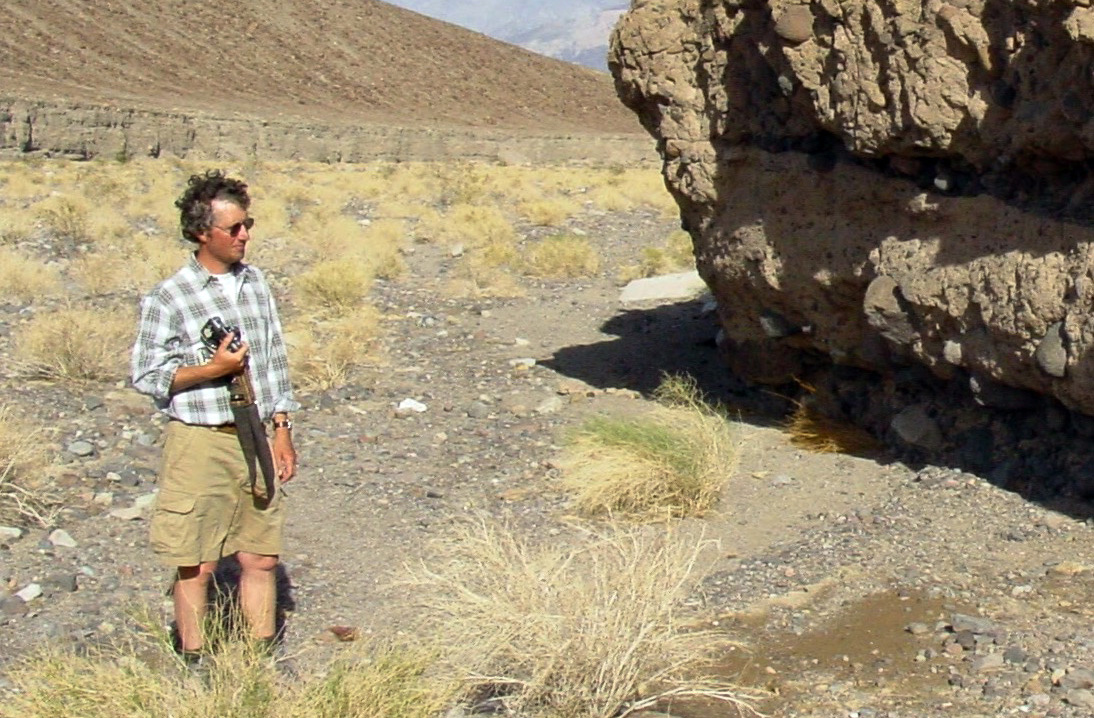In Memoriam: Philip Allen
Philip Allen, Professor of Physical Sedimentary Systems at ETH Zurich from 2001 to 2005 passed away on 9 March 2021.

Philip’s academic career carried him back and forth between the UK, Ireland, and Switzerland multiple times. He studied at Cambridge University, followed by a post-doc at the University of Bern. He worked as a lecturer at Cardiff University and Oxford University before taking a chair at Trinity College Dublin in 1996. From here, it was back to Switzerland where he took up the Professorship of Physical Sedimentary Systems at ETH Zurich in 2001. In 2005, he decided to return once more to the UK and Imperial College London, where he remained until his retirement in 2015.
Philip’s research delved into many aspects of Sedimentary Systems. His interests spanned a range of problems from the scales of sedimentary structures to the global climate in the Neoproterozoic. Some of his important contributions included numerical models of the stratigraphy in foreland basins, the climate and geology under Snowball-Earth conditions and how tectonic and climatic signals are preserved through the sediment routing system to enter the stratigraphic record. His approach to science was grounded in rigorous field observation, blending this into a mechanistic understanding of the Earth surface system. He had a gift for recognising how the physical processes that shape the Earth’s surface could leave behind evidence of their operation, and how that evidence in turn could be used to track the evolution of the surface through time. A cursory glance at any of the journals that encompass sedimentary geology today will readily show that this approach is now ingrained within the field.
Philip was well-known and respected as a teacher and a mentor and was happiest in the field, whether for research or for teaching. His students and colleagues will remember him perched by an exposure, deftly sketching it in his notebook, and his habit of asking “Are we happy?” before moving on to the next stop. Philip had a good eye for emerging fields and important problems and as a good mentor, many of these fields were handed off to his top students and post-docs who have gone on to successful careers working in sub-fields of Philip’s creation.

Much of the field of Basin Analysis was defined by Philip Allen through his book of that title, written with his brother, who is also a geologist, and published now through three editions. This book served as the introduction for a generation of students to the large-scale aspects of sedimentology, and its connections to the broader fields of geodynamics and climate. His book on Earth Surface Processes was one of the first to take a rigorously physical approach to the topic, bringing in concepts from tectonics, sedimentology, stratigraphy, and geophysics. Philip added another book, Sediment Routing Systems, to his CV in 2017, building on a term that he helped to popularise and develop.
Although his stay at ETH was relatively short, his impact on the academic landscape was significant, not least for the cohort of young researchers who received their start under his mentorship and have remained in Switzerland, such as Guy Simpson and Sebastian Castelltort. Philip’s impact on the Swiss geologic landscape is also manifested through his classic work on the Swiss Molasse basin. Many of the concepts that we now take for granted, such as the lithosphere flexure, the onlap and unconformity of the forebulge, and the sedimentary facies of the basin were defined or promoted by Philip through his papers and books, which continue to influence students at ETH and throughout the world.
Written by Sean Willett and Alex Densmore
